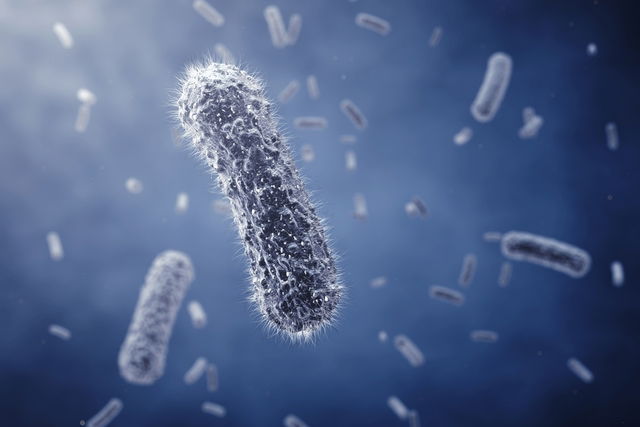Escherichia coli or E. coli, is a bacteria that is naturally found in the gut that does not always cause symptoms. There are some types of E. coli, however, that are harmful when consumed through contaminated foods. This bacteria can cause gastroenteritis and heavy bouts of diarrhea with mucus or blood.
In addition to causing intestinal infections, E. coli can also cause UTIs, particularly in women. UTIs caused by E. coli are diagnosed through urine testing. Once the bacteria is confirmed, specific treamtent that eliminates this bacteria can be initiated.
There are 7 types of E. coli that cause intestinal infections: ETEC (or enterotoxigenic E. coli), EPEC (or enteropathogenic E. coli), STEC (or Shiga toxin-producing E. coli), EHEC (or enterohemorrhagic E. coli), EIEC (or enteroinvasive E. coli), EAEC (or enteroaggregative E. coli), and DAEC (or diffusely-adherent E. coli). The type of E. Coli causing infection can be confirmed through stool testing. It is commonly found in children, pregnant women, older adults or people with weakened immune systems.

Main symptoms
The symptoms of intestinal infections caused by E. Coli usually appear 5 to 7 hours after exposure to this bacteria. The most common symptoms of a urinary or intestinal E. Coli infection are:
- Abdominal pain
- Persistent diarrhea
- Pain or burning with urination
- Blood in urine or stool
- Cloudy urine
- Persisten, low-grade fever
E. Coli infections should be assessed as soon as symptoms emerg. This way treamtent can be initiated promptly, preventing further health complications.
E. Coli during pregnancy
It is common for many women to experience several UTIs during pregnancy, and in many cases, the UTI is caused by Escherichia coli. This bacteria can reach the urethra and start to spread, causing symptoms like pain, burning and urinary urgency.
Treatment for E. Coli during pregnancy is completed with prescription antibiotics. Infected women are also advised to increase their water intake to help eliminate bacteria in the urinary tract.
Online E. Coli symptom checker
Intestinal infections caused by E. Coli are very common and can produce very uncomfortable symptoms. To assess your risk for an intestinal infection, enter your symptoms below:
Bacterial transmission
This bacteria is transmitted through contaminated food or water. It can also spread through direct contact with an infected person’s stool. It is commonly spread. through children at school or in daycare, as hand hygiene may not be as thorough.
Because it is easily transmitted, E. Coli bacteria can cause various illnesses, such as:
- Gastroenteritis, which affects the intestines
- UTI, when the bacteria reaches the urethra or bladder
- Pyelonephritis, when the bacteria starts in the lower urinary tract and spreads up to the kidneys
- Appendicitis, which affects the appendix
- Meningitis, when the bacteria reaches the nervous system
When Escherichia coli are not properly treated, this bacteria can enter the blood circulation, and cause septiciemia. This is a very serious condition that requires treamtent in a hosptial setting.
Treatment options
Treatment for Escherichia coli based on the sensitivity profile of this bacteria, which is a test that relays this bacteria’s response to several antibiotics. Symptomatic patients with a UTI, for example, are often prescribed antibiotics like cephalosporin, levofloxacin or ampicillin.
Intestinal infections are not always treated with antibiotics, however, as the body can usually eliminate E. Coli on its own within a few days. The doctor will likely recommend rest and increased fluid intake. Anti-diarrhea medications are not recommended, as the body will be unable to eliminate the bacteria, which can worsen the infection.
Another great way to regulate intestinal flow is through use of probiotics, which can be found in pharmacies and natural health stores.
Prevention measures
To prevent E. Coli contamination, you are advised to:
- Wash your hands after using the bathroom
- Wash your hands prior to eating
- Wash your hands before and after preparing meals
- Ensure food that is consumed raw (like lettuce or tomato) is thoroughly washed
- Avoid swallowing pool water, river water or ocean water
In addition, you should also take additional steps to disinfect raw foods. You should soak them for 15 minutes in water with 1 tablespoon of baking powder for every liter of water.
